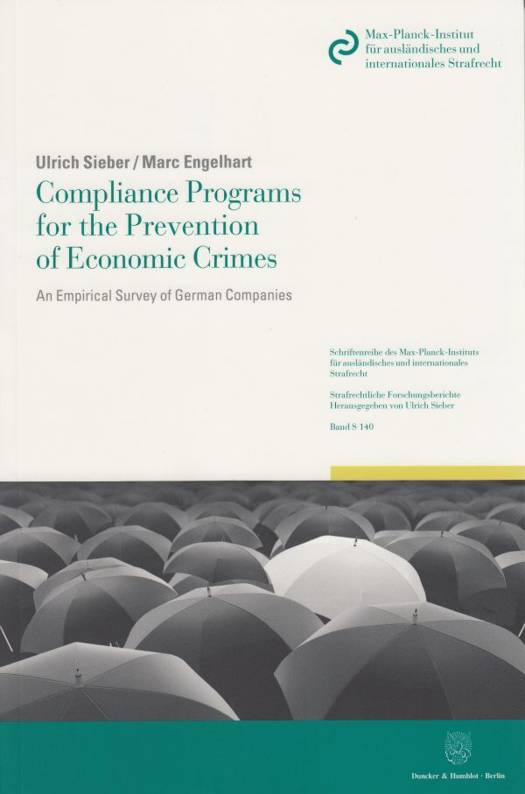
Bedankt voor het vertrouwen het afgelopen jaar! Om jou te bedanken bieden we GRATIS verzending (in België) aan op alles gedurende de hele maand januari.
- Afhalen na 1 uur in een winkel met voorraad
- In januari gratis thuislevering in België
- Ruim aanbod met 7 miljoen producten
Bedankt voor het vertrouwen het afgelopen jaar! Om jou te bedanken bieden we GRATIS verzending (in België) aan op alles gedurende de hele maand januari.
- Afhalen na 1 uur in een winkel met voorraad
- In januari gratis thuislevering in België
- Ruim aanbod met 7 miljoen producten
Zoeken
Compliance Programs for the Prevention of Economic Crimes
An Empirical Survey of German Companies
Marc Engelhart, Ulrich Sieber
€ 79,95
+ 159 punten
Omschrijving
Changes in today's global risk and information society create new challenges for criminal law and criminal policy, particularly with respect to complex crimes such as white-collar crime, organized crime, and terrorism. These changes have pushed traditional criminal law to its territorial and functional limits and require alternative forms of social control. This can be seen especially with respect to the global threats to economic markets caused by new forms of corporate crime in the 21st century. In this field States are increasingly compensating their loss of control in the prevention and prosecution of crime by requiring private persons and companies to cooperate in crime prevention, especially through the use of compliance measures as a form of "regulated selfregulation". The current draft of a new law on corporate criminal liability in Germany takes this approach. Until now, however, progress in this area has been impeded by a lack of sound empirical data. The present book fills this gap. It is the first publication that, on the basis of a broad, scientifically based empirical study, not only analyzes the existence, content, and effectiveness of German compliance programs but also addresses the effectiveness of various strategies in preventing crime and fostering the implementation of compliance programs.
Specificaties
Betrokkenen
- Auteur(s):
- Uitgeverij:
Inhoud
- Aantal bladzijden:
- 333
- Taal:
- Engels
- Reeks:
- Reeksnummer:
- nr. 140
Eigenschappen
- Productcode (EAN):
- 9783428144587
- Verschijningsdatum:
- 20/08/2014
- Uitvoering:
- Paperback
- Formaat:
- Trade paperback (VS)
- Afmetingen:
- 147 mm x 224 mm
- Gewicht:
- 430 g

Alleen bij Standaard Boekhandel
+ 159 punten op je klantenkaart van Standaard Boekhandel
Beoordelingen
We publiceren alleen reviews die voldoen aan de voorwaarden voor reviews. Bekijk onze voorwaarden voor reviews.









